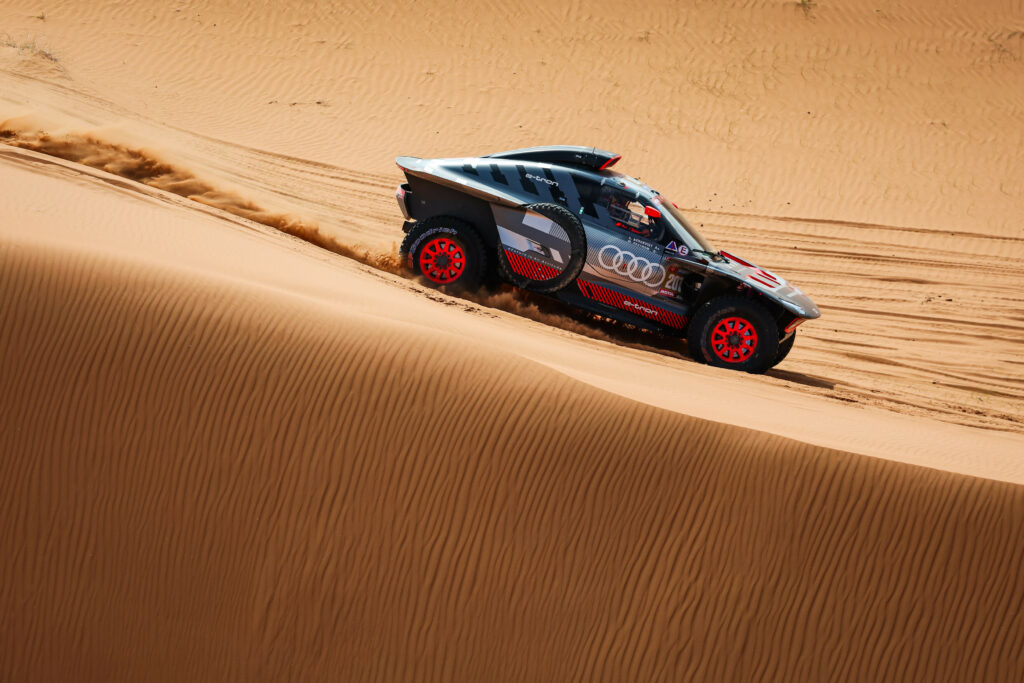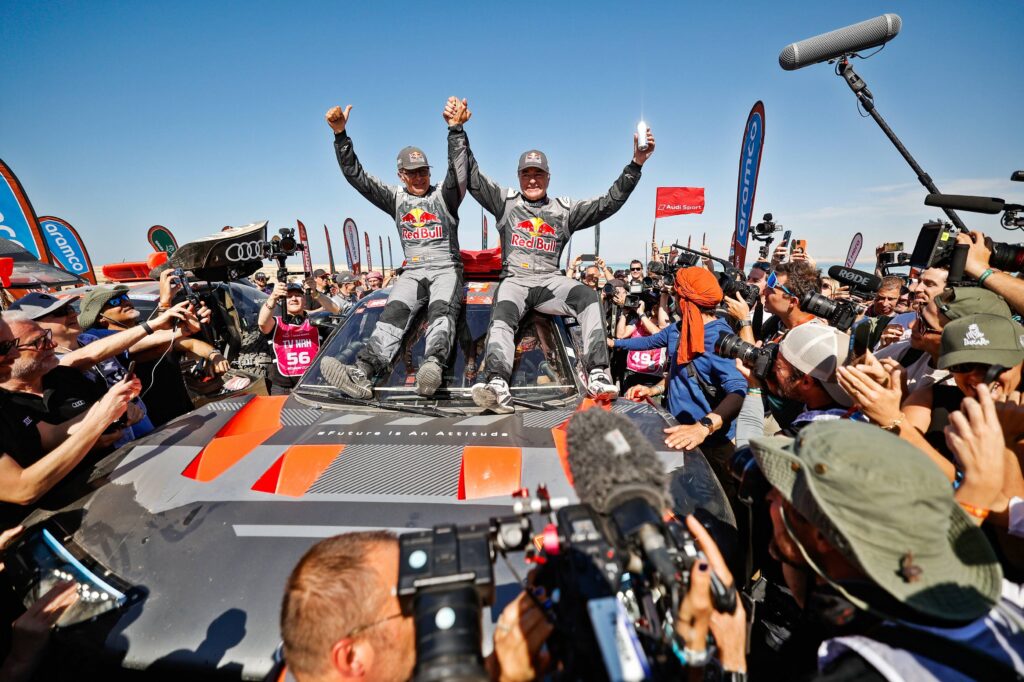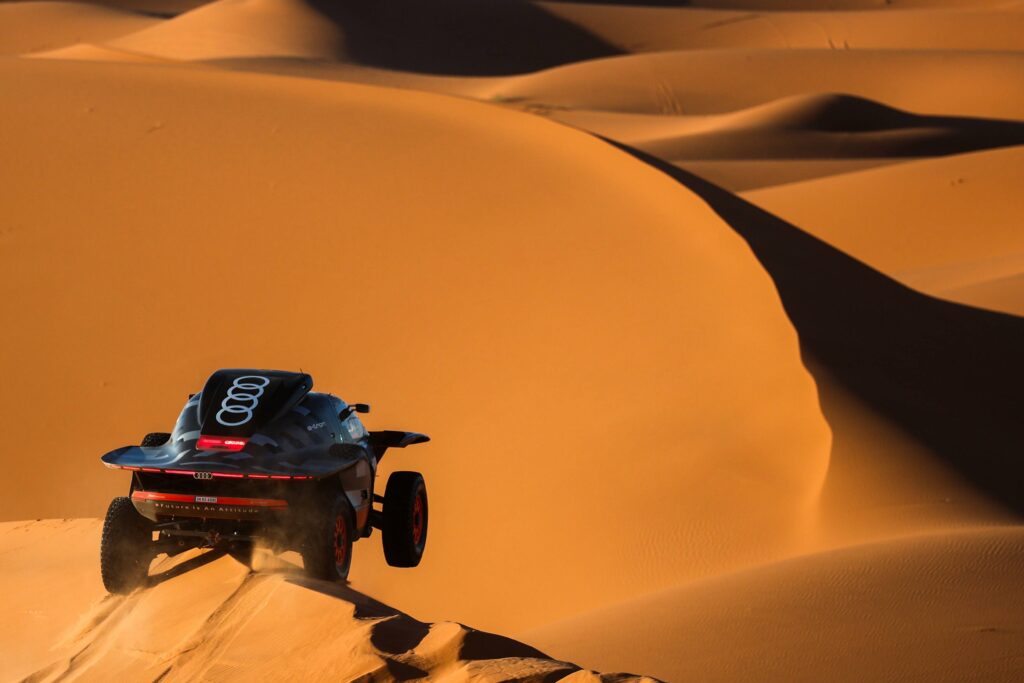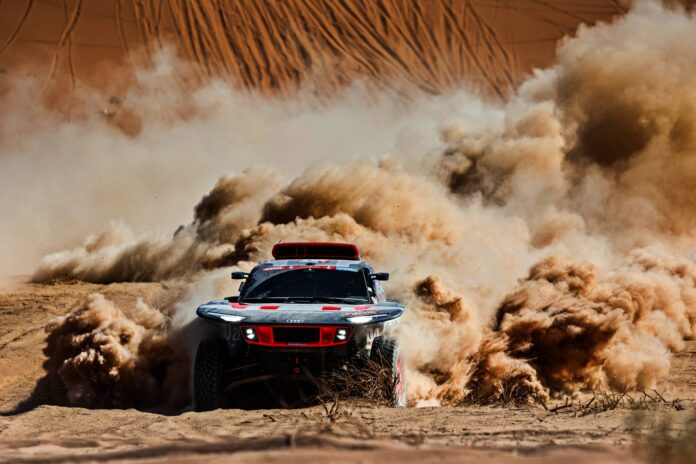While Audi has won titles in championships such as the World Rally Championship and World Endurance Championship, it has never won any round of the Dakar Rally, the world’s toughest off-road event. This year, it can add that event to its list of victories with a win by Carlos Sainz/Lucas Cruz in the RS Q e-tron.

First win by electrified rallycar
This is a significant historic win for Audi – with the RS e-tron, it is also the first time that a low-emission prototype with an electric drive, high-voltage battery and energy converter has won the desert rally held in Saudi Arabia.
Sainz too has set a record himself by being the oldest driver ever to win the Dakar Rally. The father of the Formula 1 driver with the same name is 61 years old.

Tougher than ever
Just as in past Dakar Rallies – originally from Paris to Dakar and then in South America – the terrain in Saudi Arabia is punishing and places extreme demands on man and machine over 13 full days. Daily stages were more than 400 kms with two marathon stages that had limited or even no service. Rocks, sand and towering chains of dunes and often difficult navigation were typical in the Empty Quarter of the Arabian Peninsula.

Four wins, four brands
Perhaps it’s not surprising then that the winner is a veteran of the event. Together with his co-driver Cruz, Sainz has won it three times before (2010, 2018 and 2020), each time with a car from a different brand. This year, it was with Audi that he collected his fourth Dakar victory.
However, 2-time World Rally Champion Sainz (also known as ‘El Matador’) could not be sure until shortly before the end even though they had held a steady lead after the sixth stage. Sebastien Loeb/Fabian Lurquin from Team BRX were in strong pursuit and closing the gap at times, until their car suffered damage on the penultimate day.

Two other Audi crews had also put in a strong performance in the early stages. The Swedes Mattias Ekstrom/Emil Bergkvist won the Prologue at the beginning and improved to second place behind Sainz/Cruz by the rest day after 6 stages. However, a defect on the rear axle on the seventh stage cost them all their chances.
Stephane Peterhansel, record holder with 14 Dakar victories, was in sixth place shortly before the halfway point after his 50th stage win in the car and his 83rd overall. A defect in the hydraulic system threw him and his French partner, Edouard Boulanger, back to 22nd place on the sixth stage.

Both teams then put themselves at the service of Team Audi Sport. Whether it was tactically dropping back before the second marathon stage to avoid having to open the route or supporting Sainz/Cruz, the team worked tirelessly and reliably during the physically demanding, long and tough rally.
Project started during pandemic period
Back in the dark days of the COVID-19 pandemic, Audi Sport had begun the project to take on the Dakar Rally with an electrified rallycar. It had ended its campaign in Formula E (the all-electric single-seater series) in 2021 and switched attention to the off-road event which it had never before participated in.


The RS e-tron was unveiled to the public in 2021 and underwent rushed development and testing to be able to enter the 2022 Dakar Rally. Its best result was ninth and in the following year, it finished 14th. This year, on its third attempt, it claimed a convincing victory.
On to Formula 1
This year’s attempt was actually to be the last, going by Audi Sport’s partnership with Q Motorsport run by the X-raid Team. So the win came just in time and allowed Audi Sport to succeed in its mission. Now, Audi’s technical and financial resources will be dedicated to its Formula 1 entry to take place in 2026.



